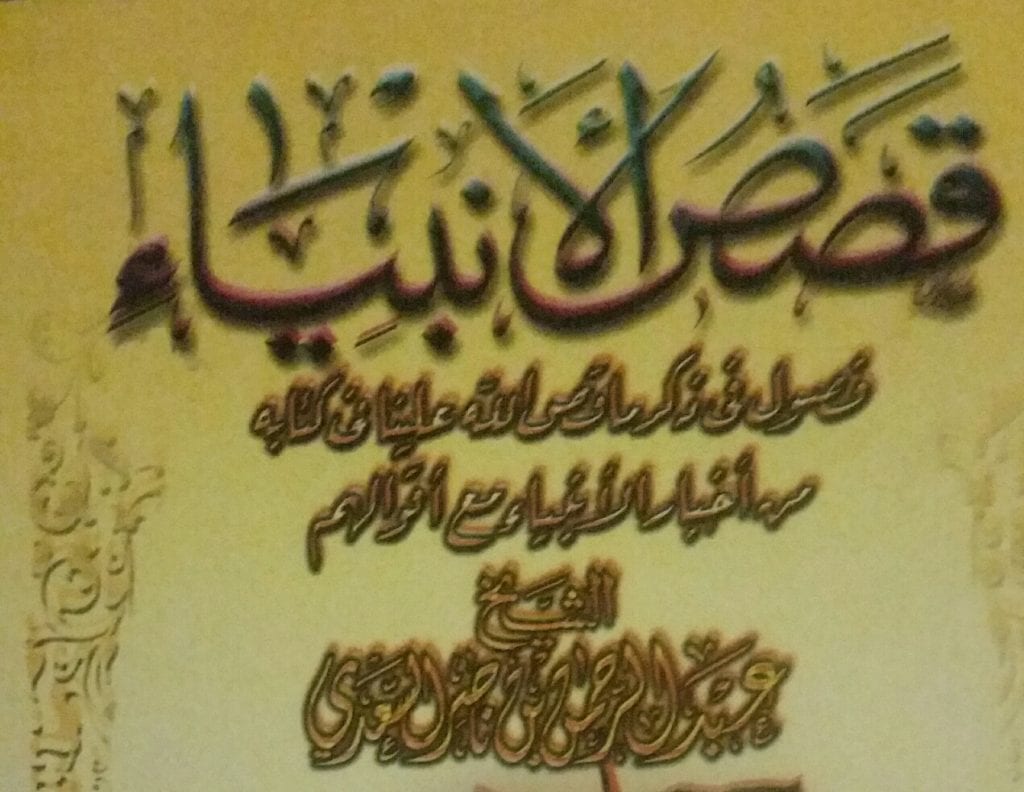By the Shaykh 'Abdul-'Azîz ibn Bâz
Shaykh 'Abdul-'Azîz bin Bâz -
rahimahullâh - said:[1]
“The etiquettes, manners and characteristics necessary for the
du'ât
(callers to Islâm) has been duly explained by Allâh -
the Mighty and Majestic - in many
âyât and in many different places in the Noble Qur‘ân. And from those necessary etiquettes are:
Firstly: Sincerity
So it is obligatory upon the
dâ'î (caller) to have
ikhlâs (sincerity and purity of intentions and actions) for Allâh -
the Mighty and Majestic - neither desiring to showoff, nor desiring reputation, nor desiring the praises and the accolades of the people. Rather, the
da'î should only call to Allâh seeking the Face of Allâh, as He -
the One free from all imperfections - says:
“Say: This is my path, I do call to upon knowledge.”[2]
And Allâh -
the Mighty and Majestic - said:
“And who is better in speech than one who calls to Allâh.”[3]
Thus it is a must to have
ikhlâs and to call only to Allâh -
the
Mighty and Majestic - and this is the most important ettiquette and the greatest quality; that you seek from your
da'wah(call) the Face of Allâh and the Home of the Hereafter.
Secondly: Knowledge
To call the people to upon
'ilm (knowledge), and not ignorance:
“Say: This is my path, I do call to Allâh upon knowledge.”[4]
So knowledge is an essential obligation in calling to Allâh. So
beware of calling to Allâh based upon ignorance, and beware of speaking
without due knowledge. Indeed, ignorance destroys, it does not build;
and it causes corruption, not reformation and correction. So - O
worshipper of Allâh - fear Allâh and beware of speaking about Allâh
without due knowledge, and do not call to anything except after
knowledge of it and having insight into what Allâh and His Messenger
sallallâhu 'alayhi wa sallam have said. So it is upon the student of knowledge and the
dâ'î to have knowledge of, and insight into that which they call to, knowing its proofs and evidences.
Thirdly: Mildness and Gentleness
From the
akhlâq that it is necessary to have -
O dâ'î - is to be mild and forbearing in your
da'wah, and being gentle and patient in it, as were all the Messengers
'alayhimus-salâtu was-salâm. Beware of being hasty, harsh and strict in your
da'wah, rather be patient, mild and gentle. In this regard, some of the proofs have already preceeded, such as the saying of Allâh -
the Mighty and
Majestic :
“Call to the way of your Lord with wisdom and beautiful admonition, and argue with them in ways that are best.”[5]
And His -
the Most Perfect's - saying:
“And by the Mercy of Allâh you were able to deal
gently with them. If you had been severe and harsh-hearted they would
have broken away from about you.”[6]
And His -
the Most Majestic's - saying, with regards to Mûsâ and
Hârûn
'alayhimus-salâm:
“So speak to him mildly, perchance he may take admonition, or that he may fear Allâh.”[7]
And the Prophet
sallallhu 'alayhi wa sallam said in the authentic hadîth:
“O
Allâh! Whosoever is a guardian over any of the affairs concerning my
Ummah and he is gentle with them, then be gentle with him. And whosoever
is a guardian over any of the affairs concerning my Ummah and he is
harsh with them, then be harsh with him.”
[8]
So - O servant of Allâh - it is necessary upon you to be gentle in your
da'wah and not to be harsh upon the people. Do not turn the people away from the
Dîn
due to your harshness, ignorance, or other such behaviour. On the
contrary, be mild, forbearing and patient; and be soft and pleasant in
speech, so your words may
have an effect upon the heart brother, or
that it may have an effect upon the one you are addressing the call to.
Then the people will better appreciate your call and invitation. So
undue strictness causes people to become distant, not close; and it
causes separation, not unity. Therefore, it is a must to be gentle, as
the Messenger
'alayhis-salâtu was-salâm said:
“Indeed
gentleness does not enter into anything except that it beautifies it, is
it removed from anything except that it disfigures it.” [9]
And he
'alayhis-salâtu was-salâm also said:
“Whoever is prevented from gentleness, is actually prevented from all good and excellence.” [10]
Fourthly: Setting an Example
From the necessary or rather obligatory - etiquettes and qualities that a
dâ'î
must possess is acting in accordance to what he is calling to, and
being a righteous example of what is being called to. He should not call
to do something and then not do it himself, nor call to leave
something, whilst engaging in it himself.
This is the condition of the losers - we seek Allâh's refuge in this!
It is those Believers who call to the truth, act upon what they call to
the truth and hasten to righteousness and avoid the prohibited, these
are the ones who will be successful and who will be rewarded. Allâh -
the Most Majestic - says:
“O you who believe! do you say that which you do not
do. It is most hateful in the sight of Allâh that you say that which
you do not do.”[11]
Likewise, Allâh - the One free from all imperfections said, whilst
condemning the Jews for ordering the people with righteousness
whilst forgetting it themselves:
“Do you enjoin righteousness upon the people whilst
you yourselves forget to practice it, and you recite the Book? Have you
no sense?”[12]
And it has been established from the Prophet
sallallâhu 'alayhi wa sallam that he said:
“A
man will be brought on the Day of Judgement and he will be thrown into
the HellFire, so that his intestines will come out and he will go around
like a donkey goes around the millstone. The people of HellFire will
gather around him and say: O soandso! What happened to you? Did you
not used to order us with good and prohibit us from evil? He will say: I
used to order you with good and not do it myself; and I used to
prohibit you from evil and do it myself.” [13]
This will be the situation of the one who calls to Allâh, ordering
the good and prohibiting the evil; whilst acting contrary to one's
saying, or saying things contrary to ones actions - we seek refuge in
Allâh from this. Therefore, from the most important qualities and one
greatest obligations upon the
dâ'î is to act upon what he calls to and abstain from that which he prohibits. The
dâ'î should have an excellent character and praiseworthy conduct, being patient and inviting to patience. The
dâ'î should be sincere in his
da'wah and strive in spreading goodness to the people and keeping them away falsehood. At the same time the
dâ'î
should supplicate for the guidance of others, saying: “O Allâh! Guide
him, and grant him the ability to accept the truth.”. So from the
excellent manners of the
da'î is supplicating, guiding and being patient with the harms that come with this
da'wah
.
When the Prophet
'alayhis-salâtu was-salâm was informed that the tribe of Daws had become disobedient he said:
“O Allâh! Guide Daws and bring them.”[14] So the
dâ'î
should supplicate for guidance and ability to accept the truth for the
one he is calling, and he should be patient and encourage patience in
this. He should not despair, nor feel hopeless, nor say anything except
good. He should not be harsh and strict, nor should he say a word which
may cause aversion to the truth.
However, if anyone commits aggression and oppression, then a different treatment is to be to such people, as Allâh -
the Most Majestic - says:
“And do not argue with the people of the Book except in a good way, except those who do wrong.”[15]
So a wrongdoer, who opposes the
da'wah with evil and enmity
and seeks to cause harm, is to be dealt with in a different manner. If
possible such a person should be imprisoned, or something similar to
that - depending upon the nature of his to the
da'wah. However,
as long as he causes no harm, then it upon you to be patient and
selfevaluating and to debate with him in ways that are best. If any
personal harm was caused by such a person, then such harm should be
borne with patience - as did the Messengers and those who followed them
in goodness and righteousness, patiently bear such harms.
I ask Allâh to grant us all the wellbeing and the ability to convey this
da'wah in a wise manner, that He corrects our hearts and our actions, and that He grants to us the understanding of the
Dîn
and firmness upon it making us of those who are guided and guiding
others, righteous and teaching others righteousness. Indeed He is the
Most Majestic, the Supreme, the Most Generous.”
REFERENCES:















